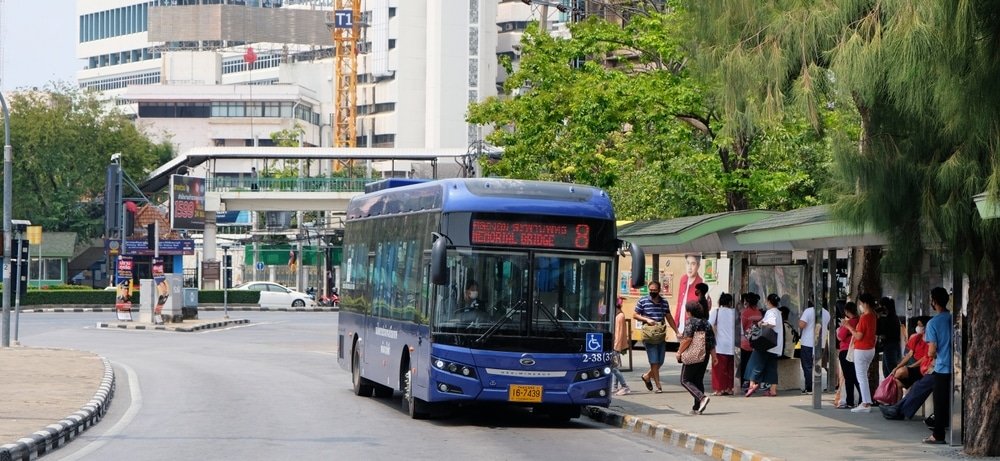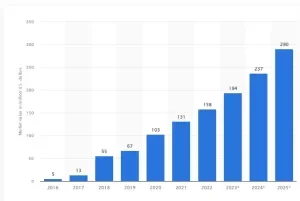Switzerland and Thailand recently cracked a groundbreaking carbon credit deal under Article 6.2 of the Paris Agreement on 9 January 2024.
Both countries have made their first transaction of Internationally Transferred Mitigation Outcomes (ITMOs), in which Swiss-based KliK Foundation purchased 1916 ITMOs from Thailand’s Energy Absolute Public Co. Ltd company for the Bangkok E-Bus Program.
Switzerland is the first sovereign country to purchase units to meet its national determined contributions (NDCs). On June 24, 2022, the endorsement of this deal occurred, and credits were allocated to the KliK Foundation in the Swiss Emissions Trading Registry on December 15, 2023
For a few years, the KliK Foundation has been supporting CO2 mitigation activities in countries that have signed a bilateral climate agreement with Switzerland under Article 6.2 of the Paris Agreement.
Apart from Thailand, the Swizz country has also signed similar agreements with Dominica, Ukraine, Ghana, Chile, Georgia, Morocco, Malawi, Peru, Senegal, Tunisia, Uruguay, and Vanuatu.
Relevance of Article 6.2 of the Paris Agreement to the Swiss-Thai Carbon Credit Deal
Article 6.2 of the Paris Agreement provides “a decentralized framework for countries that are parties to the Paris Agreement to enter into bilateral or multilateral arrangements, known as “cooperative approaches.”
It enables the transfer of one country’s GHG carbon credits to other countries to fulfill their net zero pledge to the Paris Agreement, as outlined in their NDCs. These specific carbon credits are known as Internationally Transferred Mitigation Outcomes (ITMOs).
The country obtaining ITMOs under Article 6.2 is termed the “host country,” as it hosts several types of GHG reduction projects. The “recipient” country is involved in ITMO transactions. It fortifies its NDCs by financing projects located at sustainable and cost-effective GHG mitigation sites.
This is how Article 6.2 of the Paris Agreement facilitates the utilization of cross-border carbon credit exchange to achieve their net zero targets under the Paris Agreement.
Both the companies have given a joint statement:
“The ITMOs will be used by the Klik Foundation to fulfill its compensation obligation under the Swiss CO₂ Act. Switzerland intends to use these ITMOs towards its target under the Paris Agreement. To avoid double counting, Thailand has committed to adjust its greenhouse gas inventory by the amount of mitigation outcomes transferred to Switzerland.”
This leads to an inference that the Swiss-Thai carbon credit deal is a mutual commitment towards their NDCs and immensely significant for the global carbon credit market.
Let’s read about the program included in the deal…
Bangkok E-Bus Program Ignites EV Revolution
The Bangkok E-Bus Programme is the crown jewel of this deal. Financed by the KliK Foundation, it has authorized a climate protection plan for the private-public transport sector to introduce EVs on the road.
Marco Berg, the managing director of KliK Foundation has confirmed that the organization commits to purchasing offsets for a maximum of 1.5 million metric tons of CO2 emissions from Energy Absolute until 2030. This acquisition constitutes only a fraction of the 20 million credits it anticipates acquiring by the end of the decade.
Energy Absolute Public Company Limited overseeing the manufacturing of EVs has contracted South Pole to develop the Bangkok E-Bus Programme. Initially, it would target all oil-operated vehicles in the Bangkok Metropolitan area and replace them with EVs.
As per reports, Energy Absolute will generate carbon credits with the launch of about 4000 electric buses in Bangkok. It will eventually stop petrol and diesel use. With this action plan, the government aims to curb a huge amount of greenhouse gas load and air pollution in the city.
Simultaneously, it will establish the groundwork for a comprehensive charging infrastructure network throughout the city. This climate protection initiative is anticipated to play a crucial role in enhancing air quality in Bangkok. This makes the program a pioneer in driving the electrification of Thailand’s mobility sector.
Furthermore, Chatrapon Sripratum, VP of Strategy Development & Investment Planning of Energy Absolute PCL strongly believes that the deal would be successful. He expects a huge bloom in the coming years.
Promising Sustainable Electrical Mobility in Bangkok
With concrete efforts and robust financing to ramp up EV manufacturing, Bangkok is setting its sights on a decarbonized future. The Bangkok E-Bus is a pilot program based on a highly efficient and sustainable strategy.
Some of the key features of this massive project highlighted by the Klik Foundation are:
The current total ownership costs (TCO) for electric buses are notably higher than those for internal combustion engine (ICE) buses. Further, The KliK Foundation intends to use carbon finance obtained through the acquisition of at least 500,000 ITMOs until 2030. The goal is to compensate the cost of total ownership between conventional buses and electric buses included in this project.
Between 2021 and 2022, the team conducted a test run, putting only 120 EVs on the road. However, privately operated bus lines in the Bangkok Metropolitan Region are currently introducing electric buses in phases. It aims to replace all internal combustion engine (ICE) buses from private operators and mitigate fossil fuel combustion.
The KliK financing mitigation initiative will offer valuable perspectives on digitalized MRV systems for GHG reduction activities and establishing EV-friendly infrastructure in Bangkok. This, in turn, will enhance Thailand’s NDC mitigation ambitions.
Value of electric vehicles (EVs) market in Thailand from 2016 to 2022, with forecasts through 2025 (in million U.S. dollars)
Source: Statista
The Bangkok E-Bus program will offer cheaper tickets, the best quality travel experience, increased frequency, and convenient travel routes for general citizens. It would give a huge boost to Bangkok’s economy and Thailand’s climate mitigation goals.
We believe that the success of this Swiss-Thai carbon credit deal should foster confidence and trust in similar agreements. It could be setting a great example for ethical carbon trading in the future.


